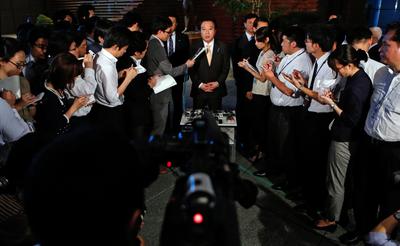The kerfuffle over the proposed consumption tax increase will come to frame more of Japan’s political agenda, with lasting consequences for Japanese political parties.
The bill aimed to double the consumption tax rate by 2015. Tax increases will be used to pay for social security needed to care for the ageing population.
The demographic transformations of recent years have changed the distribution of voters and public expenditure requirements across voting districts. One implication of these changes is that the majority of voters will, in time, come to support consumption tax reform. If so, parties opposed to the reform will lose the election because of a mismatch between demographic transformation and these parties’ geographical allocation of candidates. Yet raising the consumption tax is politically very costly in the short term.
Ichiro Ozawa, one of the Democratic Party of Japan’s founding fathers, used consumption tax reform opportunistically to split with the DPJ. Along with 49 of his followers, last July Ozawa launched a new political party, the Kokumin no Seikatsu ga Daiichi (People’s Life First).
His new party name reveals an embarrassingly straightforward populist attitude, as does its platform, which is opposed to consumption tax hikes and nuclear power plants. These are neither constructive policies nor political principles the party members believe in.
Japanese political parties have reasonably distinct core supporter groups. Trade union members and other workers in urban areas typically support the DPJ, while businesspeople in urban areas and conservative people in rural areas — including farmers, fishermen and small business owners — tend to vote for the Liberal Democratic Party (LDP). The DPJ’s overwhelming success in the 2009 general election had much to do with winning seats in urban areas.
So does Ozawa’s new party stand a chance electorally? Apart from Ozawa himself, who is based on the Iwate prefecture, none of his followers have strong political supporters in their constituencies. Many of them do not even have the support of their constituencies because they were elected under the proportional representation system. The People’s Life First party is not likely to obtain sufficient votes in the rural areas.
Ozawa has been trying to form a coalition with regional parties, including the Shinto Daichi (New Party, Big Land) based in Hokkaido and led by Muneo Suzuki, and the Osaka Ishin no Kai (Osaka Restoration Association) led by the city mayor, Toru Hashimoto. Since Ozawa’s new party has no regional base, and since, as politicians, Suzuki and Hashimoto are as cunning as Ozawa, the three would find it difficult to form a durable coalition.
In The Economic Consequences of the Peace (1919), John Maynard Keynes wrote that ‘the great events of history are often due to secular changes in the growth of population and other fundamental economic causes, which, escaping by their gradual character the notice of contemporary observers, are attributed to the follies of statesmen or the fanaticism of atheists’.
As the ongoing demographic transformation of Japanese society activates profound structural changes, Keynes’s insight is again likely to prove right. Policy responses to the ageing process have proceeded despite political conflicts and follies. The social security system in general and the public pension scheme in particular must be stable and sound, and should not be used as pawns in political games.
In less than a year’s time, it will become all too clear that demography — and not ideas — drives current-day politics in Japan.
Yukinobu Kitamura is a Professor at the Institute of Economic Research, Hitotsubashi University.

